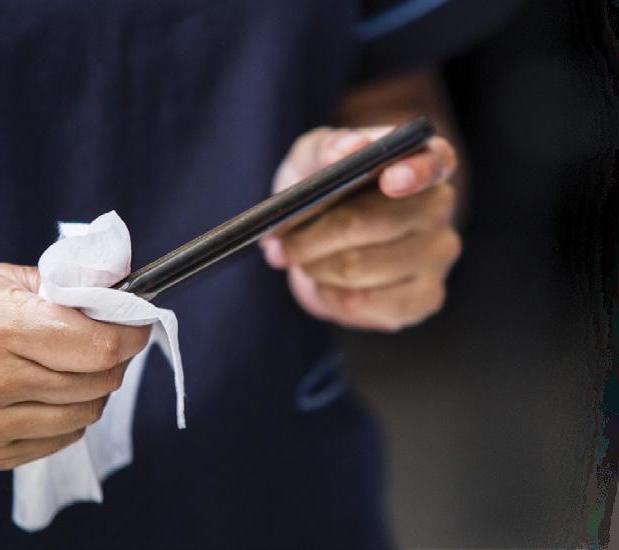
3 minute read
Buyer beware – not all disinfectant wipes are created equal
The demand for pre-saturated, disinfecting wipes has grown exponentially during the COVID-19 pandemic, with many new – and often untested – brands appearing in the market, the majority of which have little or no research behind their development in terms of the compatibility of the wipe substrate and fluid content.
According to Annette Devenish, marketing director at Infection Protection Products (IPP) the challenge with this is that a combination of two substrates can completely change the efficacy of a fluid which is why it is so important that a disinfecting product’s entire formula is tested, rather than only the active ingredient.
Advertisement
Through its now well-known sanitouch brand, IPP was the first company in South Africa to introduce trolley wipes to the local market in 2006. Its wipes are manufactured with a tried and tested detergent disinfectant solution which deactivates and kills any micro-organisms, including the coronavirus. The detergent solution includes a potent soap content which, according to the World Health Organization and scientists around the world, dissolves the fat membrane of the coronavirus which renders it inactive.
Scientist Bernard Reeksting maintains that a disinfecting wipe such as sani-touch’s trolley wipes are more effective than sanitiser spray to protect against the transmission of the coronavirus. Even if the sanitiser includes an acceptable alcohol content, a spray will only act as a wash-down given its wide and rather erratic distribution.
The sani-touch wipes physically remove bacteria and micro-organisms. The detergent solution loosens dirt while the wipe physically removes and traps the dirt, grit and grime within the wipe substrate, leaving behind a thin layer of disinfecting fluid which sanitises the surface. This is significantly more effective than a reusable cloth which results in bacteria re-contaminating and even cross-contaminating surfaces. A disposable pre-saturated wipe eliminates the potential for cross-contamination.
A number of studies conducted in the past year have proved the efficacy of disinfectant wipes as the most effective solution to disinfecting public surfaces, including trolley handles. According to Professor Charles Gerba, Professor of Virology at the Department of Environmental Science at the University of West Arizona, “… wet wipes win hands down in the fight against the coronavirus”. Gerba is internationally recognised for his methodologies for pathogen detection.
Trolley wipes and medical disinfectant wipes by sani-touch include formulations that have been scientifically developed, tweaked and perfected over many years. The company’s SABS marked products have been audited and verified for more than a decade while compatibility between wipe substrates and fluids have been tried and tested.
In response to increased demand amidst the COVID-19 pandemic, IPP invested in new state-of-the-art machinery and increased its manufacturing capacity. It has also made many of its sani-touch products available in smaller pack sizes for consumers to use at home rather than only the bulk industrial products traditionally supplied to healthcare facilities, retailers and the hospitality sector.
Even prior to the pandemic, sanitouch sanitisers included 80 percent ethanol and were the only sanitisers in South Africa with the SABS 490 and SABS 1853 marks. In 2020 the sani-touch range, including trolley wipes, hand and surface sanitiser range, medical products and alcohol-free products passed the coronavirus EU 14476 tests, a battery of European Standard tests proving their efficacy against this virus.
Not all manufacturers of disinfectant wipes and sanitisers have been as diligent about ensuring – and testing – the efficacy of their products, which means consumers have unwittingly been left vulnerable to substandard products which provide no protection against the coronavirus. New entrants to the market are frequently guilty of providing incorrect labelling information and making inaccurate claims on their products which regulatory bodies are too stretched to adequately police.
“Given what is at stake, especially during the third wave of the COVID-19 pandemic, it’s more imperative than ever to look for trusted disinfectant wipes and sanitiser brands from reputable manufacturers,” says Devenish.
For more information visit: www.sanitouch.co.za







